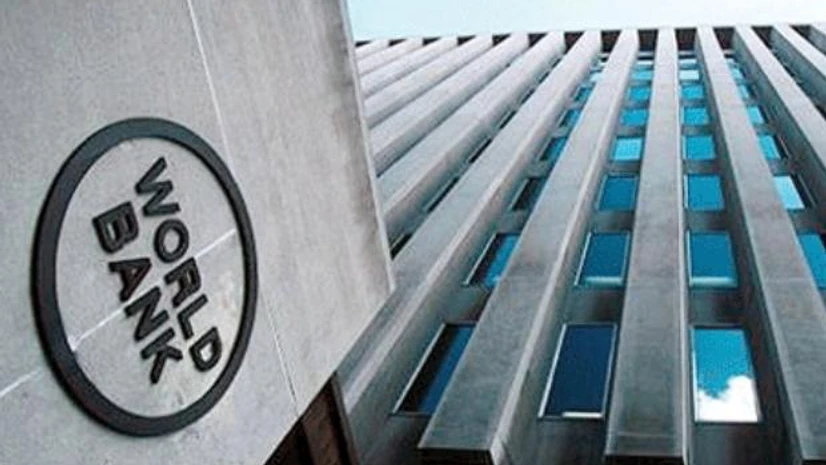The global economy is expected to expand by 4 per cent in 2021, assuming an initial COVID-19 vaccine rollout becomes widespread throughout the year, the World Bank has said.
A recovery, however, will likely be subdued unless policy makers move decisively to tame the pandemic and implement investment-enhancing reforms, it said in its latest Global Economic Prospects report.
In India, the pandemic hit the economy at a time when growth was already decelerating. Output is estimated to contract by 9.6 per cent in fiscal year 2020-21, reflecting a sharp drop in household spending and private investment.
Growth is expected to recover to 5.4 per cent in 2021 as the rebound from a low base is offset by muted private investment growth given financial sector weaknesses.
The South Asia region is projected to grow by 3.3 per cent in 2021. Weak growth prospects reflect a protracted recovery in incomes and employment, especially in the services sector, limited credit provisioning constrained by financial sector vulnerabilities and muted fiscal policy support.
The forecast assumes that a vaccine will be distributed on a large scale in the region starting the second half of 2021 and that there is no widespread resurgence in infections. The report said risks to the outlook are tilted to the downside.
More From This Section
They include more severe and longer-lasting infection rates from the pandemic, financial and debt distress caused by an abrupt tightening of financing conditions or possible widespread corporate bankruptcies, adverse effects of extreme weather and climate change, weaker-than-expected recoveries in key partner economies, and a worsening of policy- and security-related uncertainty.
Additional stress on domestic banks in the region could be triggered by the economic consequences of a more protracted recovery from the pandemic.
This in turn could lead to a rise in bankruptcies and weaken the balance sheets of the banking and non-banking sectors among several economies of the region (Bangladesh, Bhutan, India, Sri Lanka).
Extreme weather events also remain an important regional risk, said the report.
Although the global economy is growing again after a 4.3 per cent contraction in 2020, the pandemic has caused a heavy toll of deaths and illness, plunged millions into poverty, and may depress economic activity and incomes for a prolonged period.
Top near-term policy priorities are controlling the spread of COVID-19 and ensuring rapid and widespread vaccine deployment. To support economic recovery, authorities also need to facilitate a re-investment cycle aimed at sustainable growth that is less dependent on government debt.
"While the global economy appears to have entered a subdued recovery, policymakers face formidable challenges -- in public health, debt management, budget policies, central banking and structural reforms -- as they try to ensure that this still-fragile global recovery gains traction and sets a foundation for robust growth," said World Bank Group President David Malpass.
"To overcome the impacts of the pandemic and counter the investment headwind, there needs to be a major push to improve business environments, increase labour and product market flexibility, and strengthen transparency and governance," he said.
(Only the headline and picture of this report may have been reworked by the Business Standard staff; the rest of the content is auto-generated from a syndicated feed.)

)
